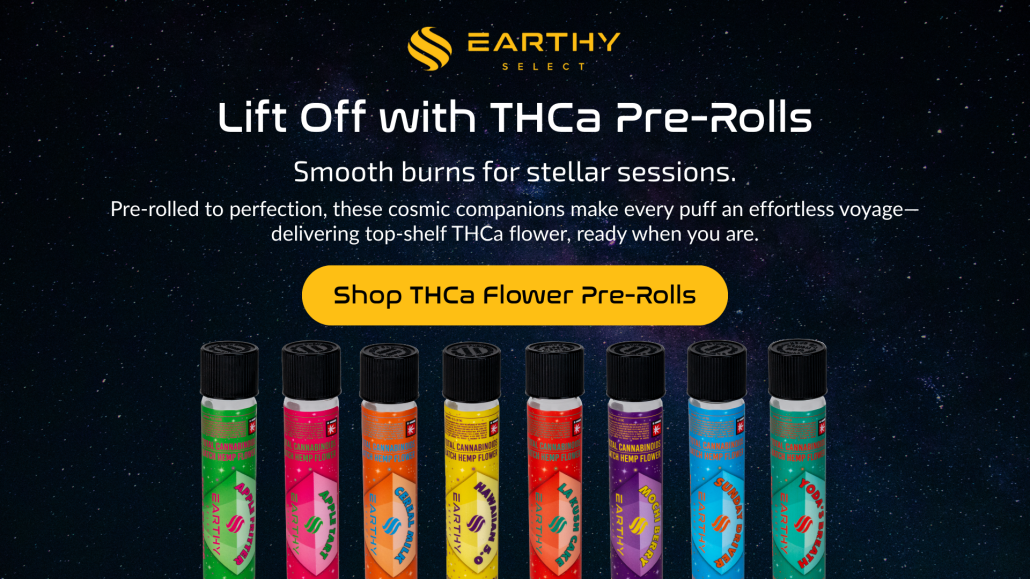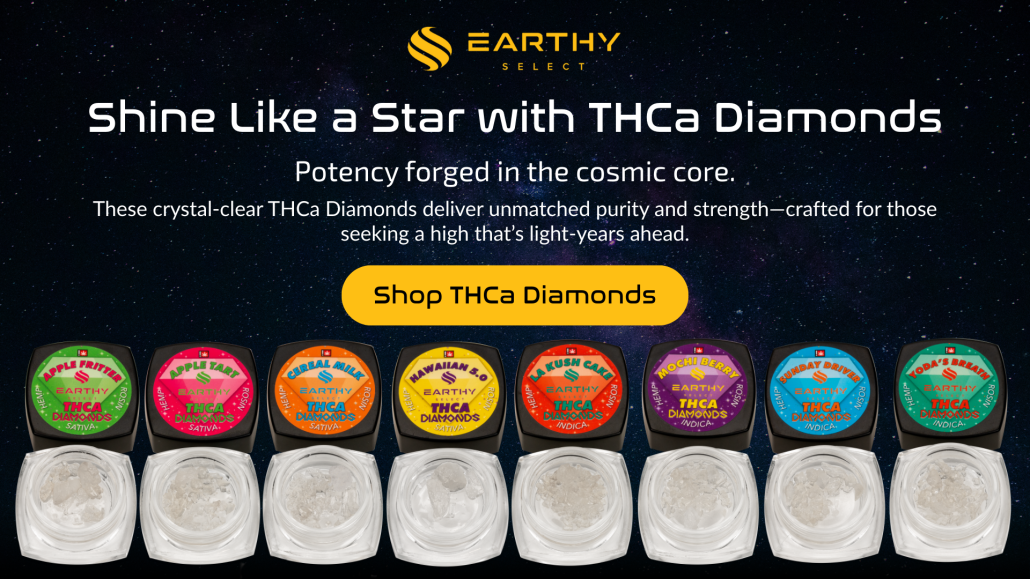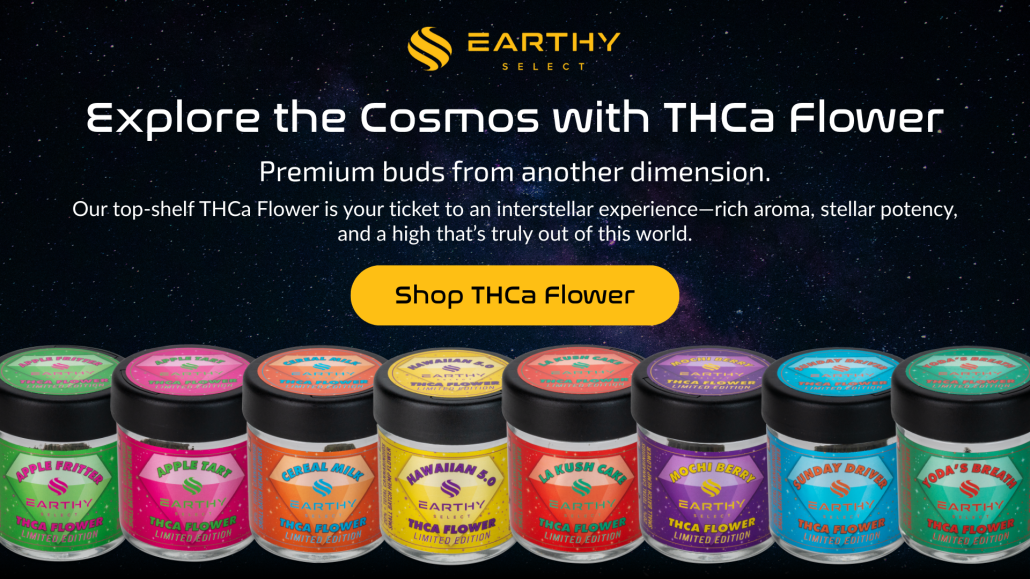North Carolina and THCa: A Guide to Current Legal Status
Key Takeaways:
- THCa’s legal status in North Carolina is not explicitly defined by state laws, though it may align with federal hemp guidelines permitting products with 0.3% or less Delta-9 THC by dry weight [1].
- Consumers are encouraged to carefully review Certificates of Analysis (COAs) to confirm that THCa products meet federal standards and are free from contaminants, given the absence of specific state regulations in North Carolina.
- The Eastern Band of Cherokee Indians operates under separate guidelines, which may potentially allow THCa products within their jurisdiction, though their regulations primarily focus on medical marijuana and lack clear guidance on THCa [2].
North Carolina’s approach to cannabis laws appears to be evolving at a measured pace, prompting many residents to explore alternatives to traditional marijuana. THCa (tetrahydrocannabinolic acid) has emerged as a notable option, yet the question lingers: is THCa legal in NC? Gaining a clear understanding of the legal landscape and its implications for accessing safe, compliant products is increasingly relevant.
At Earthy Select, we prioritize transparency and quality within the cannabis sector. Our products, including high-quality THCa Flower, are crafted to meet rigorous standards for safety and compliance through third-party testing and organic cultivation practices in California and Colorado. We aim to provide North Carolina consumers with a dependable source for federally compliant THC options, whether for wellness or recreational purposes.
This guide offers insights into the current legal status of THCa in North Carolina and its potential impact on you, helping to inform your decisions and explore cannabis possibilities with greater confidence.
Federal Hemp Law vs. North Carolina Statutes
The 2018 Farm Bill established federal legality for hemp and its derivatives, including compounds such as THCa, provided they contain less than 0.3% Delta-9 THC by dry weight [1]. However, the implementation of these guidelines was left to individual states, resulting in a varied and often complex set of regulations nationwide.
In North Carolina, state law generally aligns with federal hemp guidelines, allowing products with less than 0.3% Delta-9 THC under the framework of the North Carolina Industrial Hemp Pilot Program, which was adapted following the 2018 Farm Bill [3]. That said, North Carolina’s statutes do not specifically mention THCa, leading to a degree of uncertainty. Law enforcement may occasionally treat hemp-derived cannabinoids as marijuana, which remains prohibited for recreational use and is only permitted under very limited medical circumstances in the state [4]. Thus, while THCa products might comply with federal standards, their possession and sale in North Carolina often fall into an ambiguous legal space.
Given the lack of clear state-level regulations, both consumers and retailers may face potential legal challenges, even when products adhere to federal guidelines. Until more definitive rules are established by state legislators, navigating North Carolina’s hemp laws is likely to remain a nuanced endeavor.
State-Level Rules Defining THCa Legality in NC
The legal standing of THCa vs Delta-9 THC in North Carolina remains somewhat unclear due to the state’s restrictive cannabis policies and the absence of specific regulations addressing this particular cannabinoid. Recreational marijuana is not permitted in NC, and access to medical cannabis is limited to a narrow program for epilepsy using CBD extracts [4]. While the 2018 Farm Bill permits hemp products with 0.3% or less Delta-9 THC, North Carolina has not explicitly clarified its position on THCa, the non-psychoactive precursor to THC present in raw hemp [1].
Consequently, THCa often occupies a legal gray area. It may meet the federal definition of legal hemp if it remains below the 0.3% Delta-9 THC threshold prior to conversion, yet state law enforcement might classify THCa as a controlled substance due to its potential to transform into THC when heated [5]. Enforcement practices can also vary across different counties in NC, adding further complexity to the situation.
Given these factors, both North Carolina consumers and businesses are advised to proceed with caution. Until the state offers more precise guidance, possessing or distributing THCa products may carry legal risks, even if lab reports indicate compliance with federal hemp standards.
North Carolina’s Cherokee Nation and THCa Legality
The Eastern Band of Cherokee Indians (EBCI) occupies a distinct position within North Carolina’s cannabis framework. Due to tribal sovereignty, laws on Cherokee Nation land can differ from state regulations, particularly in relation to cannabis. In 2021, the EBCI authorized medical marijuana on tribal land, and by 2023, they established the Great Smoky Cannabis Co. dispensary to serve qualifying patients, including some non-members [2]. However, the precise legal status of THCa within their jurisdiction is not fully defined.
Federally, THCa is permitted in hemp products as long as the Delta-9 THC content remains at or below 0.3%, according to the 2018 Farm Bill [1]. Since THCa converts to intoxicating THC only when heated, it is often considered compliant with federal hemp guidelines. Yet, the EBCI’s regulations focus primarily on medical marijuana and do not explicitly address THCa flower or related products. This lack of clarity suggests that THCa might be permissible, though no specific tribal policies confirm its status.
While state marijuana laws typically do not apply on tribal land, the absence of definitive rules for THCa means that consumers and businesses in Cherokee territory should approach the matter cautiously. As the EBCI continues to develop its medical cannabis program, those interested in THCa are encouraged to stay informed about potential policy updates for greater clarity.
How to Read a Certificate of Analysis Before You Buy
Before acquiring THCa products, it’s advisable to carefully examine the Certificate of Analysis (COA). Ensure that the report is issued by a credible, independent lab—if no lab details are provided, it may be wise to look elsewhere. Review the cannabinoid profile: in North Carolina, to align with federal law, total Delta-9 THC should be 0.3% or less by dry weight [1]. Some labs report total potential THC (THCa x 0.877 + Delta-9 THC), so verify that the product remains within legal limits.
Confirm that the report includes testing for pesticides, heavy metals, and other contaminants, with results indicating “not detected” or within acceptable thresholds. Additionally, check that the COA’s date and batch number correspond to the product you’re considering. A transparent and up-to-date COA can provide assurance that your THCa product is safe, compliant, and of high quality.
Tips for Safe Consumption and Responsible Use
Approaching THCa with care and awareness is essential for a positive experience. Here are some practical considerations to keep in mind:
- Start with Small Amounts: If you’re exploring THCa that may convert to THC when heated, begin with a minimal quantity and observe the effects before considering additional use.
- Verify Your Source: Purchase only from vendors who provide lab results (COAs) confirming their products are free from contaminants. If no certificate is available, it may be prudent to seek an alternative supplier.
- Select Your Method Thoughtfully: Different consumption methods—such as smoking, vaping, or edibles—can produce varied effects on the body. For edibles, exercise particular caution with dosing, as their impact can be more pronounced and longer-lasting.
- Prioritize Well-Being: Stay hydrated, eat beforehand, and consider having a trusted companion nearby, especially if trying a product for the first time or experimenting with something new.
- Pay Attention to Reactions: Individual responses to cannabis can vary widely. If you feel uneasy at any point, it’s advisable to pause and avoid exceeding a comfortable level of use.
Adopting a responsible approach can help you appreciate the potential benefits of THCa while minimizing associated risks. Thoughtful consumption often leads to a more favorable experience.
Understanding THCa-to-Delta-9 Conversion
THCa, or tetrahydrocannabinolic acid, is the non-psychoactive precursor to THC found in raw cannabis. It transforms into the psychoactive Delta-9 THC through a process known as decarboxylation, which occurs when heat is applied, such as during smoking, vaping, or cooking. Studies suggest that under optimal conditions, roughly 70-87.7% of THCa may convert to Delta-9 THC [6].
This chemical transformation carries potential legal considerations. Under the 2018 Farm Bill, hemp is defined as cannabis containing less than 0.3% Delta-9 THC by dry weight [1]. THCa itself is not counted as THC until conversion takes place. A product might appear compliant in its raw form but could exceed legal thresholds once heated or consumed. Some regulatory perspectives advocate for assessing total potential THC (including convertible THCa) to evaluate legality, which might influence THCa’s status in future discussions [5].
For consumers, this indicates that the boundary between legal hemp and restricted cannabis can sometimes be fluid, often depending on how a product is used or tested.
Serving Sizes and Label Guidance
Interpreting labels on THCa products is a key step for safe and effective use in North Carolina. While THCa is non-intoxicating in its raw form, it becomes psychoactive THC upon heating. For this reason, paying close attention to serving sizes and potency is advisable. Look for the total cannabinoid content on the packaging, which is often expressed in milligrams or as a percentage. For those new to THCa, it’s typically best to start with a very small amount, such as a pinch or a single inhalation, and wait up to an hour to gauge the effects before using more.
Opt for products accompanied by third-party lab results or certificates of analysis (COAs), which detail cannabinoid levels and confirm the absence of harmful contaminants. Labels should also indicate compliance with the 2018 Farm Bill, meaning the product contains less than 0.3% Delta-9 THC by dry weight [1]. Recommended serving sizes can differ significantly, so a cautious approach—monitoring your responses and adjusting accordingly—is often the most prudent path. With cannabis products, careful observation and attention to detail serve as valuable guides for a safer experience.
Practical Tips for New Consumers
If you’re new to THCa in North Carolina, it’s essential to tread carefully given the legal gray areas and the potency of these products. Here’s how to start off right:
- Start Slow: Begin with a very small amount and wait to feel the effects before considering more. THCa flower can be potent, especially for those new to cannabinoids.
- Buy from Reputable Sources: Always choose vendors who provide third-party lab results (COAs) so you know exactly what’s in your product and that it’s free from contaminants.
- Stay Legal: North Carolina’s laws can be confusing. Avoid public use, keep your products in small quantities, and store them discreetly until regulations are clearer.
- Store Properly: Protect your THCa by keeping it in airtight, dark containers to preserve potency and stay within legal THC limits.
Start slow, buy smart, and stay informed to enjoy a safer THCa experience in North Carolina.
Potential Future Regulations and What They Could Mean
As North Carolina’s cannabis market continues to develop, it appears likely that more stringent regulations for THCa products may be introduced, particularly concerning lab testing and total THC calculations. At present, state oversight of hemp-derived cannabinoids like THCa is limited, though future legislation might mandate testing for potency, purity, and contaminants, similar to approaches in other states [5]. Similarly, more stringent regulations regarding Delta-9 vs Delta-8 THC may be implemented. However, currently, Delta-8 THC content is not limited to remaining at or below 0.03 % like Delta-9 THC.
Lab Testing Requirements for THCa Products in North Carolina
Required lab testing could serve to safeguard consumers by ensuring accurate labeling and identifying harmful substances. However, such measures might also lead to increased costs for both businesses and consumers, potentially affecting smaller producers. Should North Carolina implement these regulations, it could enhance transparency while possibly reshaping the industry’s structure.
Although no specific changes have been confirmed, updates seem to be on the horizon. Stakeholders are encouraged to keep track of legislative developments, as new requirements could have a notable impact on the production and sale of THCa products in the state.
Final Thoughts
While North Carolina’s cannabis regulations remain restrictive, THCa flower appears to occupy a somewhat ambiguous space under the federal 2018 Farm Bill [1]. This suggests that consumers should stay well-informed and select products that demonstrably meet legal hemp standards. At Earthy Select, our THCa Flower is cultivated on family farms, undergoes thorough quality testing, and adheres to federal compliance standards, aiming to provide a sense of assurance as you explore cannabis options. As regulations continue to evolve, we remain committed to offering dependable, high-quality products and current information to support safe and confident engagement with THCa. Check out Earthy Select’s other federally compliant products, such as Delta-9 edibles and Delta-9 gummies.
Read more:
Frequently Asked Questions About THCa in North Carolina
What does the 2018 Farm Bill say about THCa?
The 2018 Farm Bill established federal legality for hemp and its derivatives, including THCa, provided they contain no more than 0.3% Delta-9 THC by dry weight [1]. However, states like North Carolina retain the authority to apply their own regulations, which can create uncertainty regarding THCa’s local status.
Are there possession limits for THCa in North Carolina?
North Carolina has not defined specific possession limits for hemp-derived THCa when it complies with the federal 0.3% Delta-9 THC threshold [1]. Nevertheless, enforcement practices can vary, and law enforcement may not always differentiate THCa from restricted cannabis. Staying informed and sourcing from reputable, compliant vendors is often recommended.
Can I use THCa medicinally in North Carolina?
North Carolina has not widely authorized medical marijuana or explicitly permitted THCa for medical use beyond limited CBD programs for epilepsy [4]. While hemp products meeting federal compliance may be considered legal, using THCa for health purposes remains in a gray area. Consulting legal or healthcare professionals before use for medical reasons is generally advised.
Can you be arrested for possessing THCa in North Carolina?
If a THCa product adheres to federal hemp regulations, it is generally considered legal, though state law enforcement might occasionally misidentify it as marijuana, which could lead to legal complications [5]. Keeping documentation of compliance, such as COAs, and purchasing from trusted, lab-tested sources may help mitigate potential issues.
Is THCa classified as a synthetic cannabinoid?
THCa is a naturally occurring compound derived from the cannabis plant and is not synthetic. Reputable brands typically offer lab-tested, naturally derived THCa from hemp, distinguishing it from man-made cannabinoids.
What penalties exist for illegal THCa possession in North Carolina?
If THCa is mistaken for marijuana, possession of small amounts (0.5 ounces or less) may be classified as a Class 3 misdemeanor, carrying a fine of up to $200. Larger quantities could potentially result in felony charges [4]. To minimize risk, it’s advisable to ensure products comply with both state and federal regulations.
Does THCa convert to THC when heated?
Yes, heating THCa—through methods like smoking, vaping, or cooking—converts it into Delta-9 THC, the compound associated with marijuana’s psychoactive effects. This is a significant consideration in North Carolina, where Delta-9 THC levels exceeding 0.3% are not permitted [1].
Can I legally buy THCa in North Carolina?
Purchasing THCa in North Carolina appears permissible if the product meets federal hemp guidelines of less than 0.3% Delta-9 THC by dry weight [1]. Due to less clarity in state laws, it’s generally recommended to buy from trusted retailers who provide lab results to demonstrate compliance.
Medical Disclaimer / Legal Disclaimer – Information is provided for educational purposes only. It does not, and is not intended to, constitute legal advice or medical advice. We strive to be accurate and up-to-date, but the legality of cannabinoids and the science of cannabis are continually evolving. The author is neither a legal professional nor a medical expert. Before buying or using any products, you should consult with your local authorities and medical providers.
References:
- https://www.ams.usda.gov/rules-regulations/hemp/enforcement
- https://cannabislaw.report/is-thca-legal-in-north-carolina/
- https://www.ncagr.gov/divisions/plant-industry/hemp-nc
- https://www.mpp.org/states/north-carolina/
- https://www.wardandsmith.com/articles/nc-legislature-considers-comprehensive-hemp-regulation-what-businesses-need-to-know
- https://doi.org/10.1089/can.2016.0020






